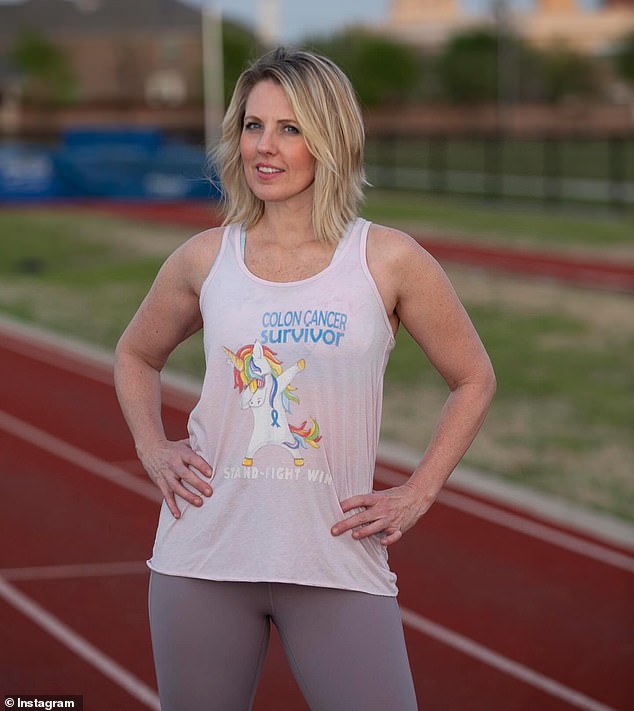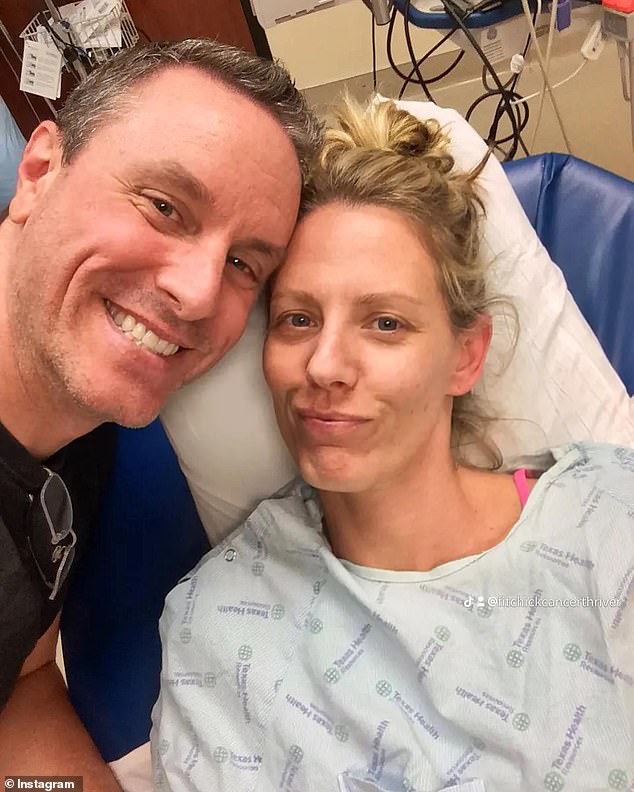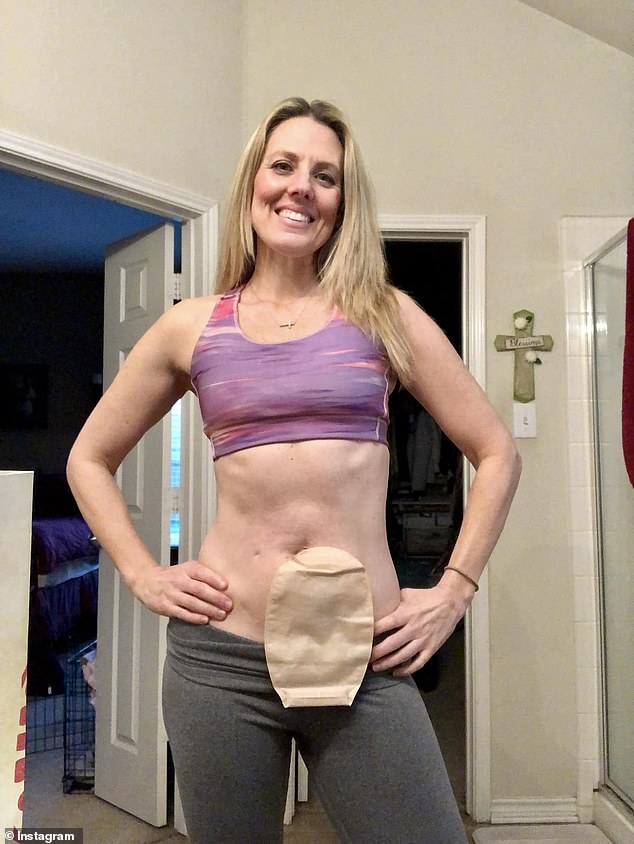Tracy Robert believed her bloating and abdominal pain were symptoms of irritable bowel syndrome (IBS), a diagnosis doctors had given her 20 years ago.
During her first pregnancy, she was also told she had an internal hemorrhoid after experiencing rectal bleeding, which doctors attributed to her IBS and hemorrhoid history.
ER staff and her primary care doctor advised her to eat more fiber and sent her home.
By the time she turned 40, Robert was battling constant bloating, constipation, and increasing rectal bleeding. She suspected something more serious.
Despite being in excellent health, on a vegan diet, with no family history of cancer and normal bloodwork, she struggled to get answers.
Multiple specialists, allergists, internists, and gastroenterologists, found nothing unusual.
She set an appointment for a colonoscopy in early 2015, something her doctor had recommended.
There, it appeared that what she had believed was a hemorrhoid for years looked more like polyps, abnormal growths of tissue that can turn cancerous. To be safe, she was referred to a colorectal surgeon for an MRI.
She was with her chiropractor, who helped her with her low abdominal pain, when she got the call. What the GI doctor initially believed was a benign polyp developed into malignant tumor.

Tracy Robert, a personal trainer and nutrition coach, was diagnosed with colon cancer at 40. She had been told for over 20 years that what doctors said were IBS symptoms were actually early signs of cancer
In the US, about 10 percent of colon cancer cases are diagnosed in people under 50.
Those numbers are rising about one to two percent each year, and researchers are still finding out why.
Robert was diagnosed with stage 2B to 3A colorectal cancer, indicating that the cancer had spread beyond the outermost layer of the colon into the rectum wall, she told Self.
Doctors were set to surgically remove the mass, but first, she would have to take oral chemotherapy pills every day along with radiation treatments five days a week for three weeks.
The tumor was buried deep in her rectum, tangled around the sphincter muscles that control bowel movements.
Surgeons had no choice but to divert her colon, bypassing her anus entirely, and bring it through her abdominal wall instead.
Now, waste empties into a colostomy bag, a permanent fixture on her stomach. Adjusting to that was one of the most challenging parts of her cancer battle.
‘I felt like I lost my sexiness, like I lost my innocence,’ she told Business Insider. ‘That put me down a really dark hole.’

Robert was diagnosed with stage 2B to 3A colorectal cancer, indicating that the cancer had spread beyond the outermost layer of the colon into the rectum wall

As a personal trainer who also did nutrition coaching, she worried about being judged for her colostomy bag: ‘I felt a lot of shame around it and a lot of ‘what did I do wrong?’
As a personal trainer who also did nutrition coaching, she worried about being judged for her colostomy bag: ‘I felt a lot of shame around it and a lot of ‘what did I do wrong?’
A self-described ‘eternal optimist,’ Robert found herself unable to play the role of ‘ray of sunshine’ for her family. The toll was most evident in her sons, then just seven and nine, who left their own beds at night and clung to her instead.
She was rediagnosed with stage 0 colorectal cancer after the surgery, meaning the cancer hadn’t spread beyond the colon lining.
Post-surgery, Robert underwent several rounds of IV chemotherapy to eliminate any lingering cancer cells. But the treatment took a harsh toll.
Her white blood cell counts repeatedly plummeted to dangerous lows, a common but risky side effect of chemo. Doctors advised cutting the regimen short, to great success.
Follow-up scans showed no evidence of disease. Against the odds, she was cancer-free.
Though she is cancer-free, Robert can’t help but wonder if she would have a colostomy bag today had a GI specialist signed her up for a colonoscopy despite her being younger than the recommended age to start getting the annual exam, 45.
‘If I could go back to my younger self, I would have asked for a colonoscopy. That could have changed everything,’ she said.
‘Doctors would have been able to catch and remove the polyp early so it never would have grown into cancer, and I wouldn’t have wound up using a colostomy bag to poop for the rest of my life.’
Robert has since taken her story to TikTok in the hope of raising awareness about colorectal cancer in young people as young as 17.
This phenomenon has puzzled and alarmed scientists and doctors who point to a confluence of factors, including poor diet, obesity, processed diets, sedentary lifestyles, antibiotic overuse, and even environmental toxins.
‘Even if you live a healthy lifestyle, whatever that looks like to you: If you feel like something’s wrong, or you’re not getting clear answers about what’s causing your symptoms, keep pushing for answers,’ she said.
‘Just because a doctor thinks you have one thing, like a hemorrhoid, it doesn’t necessarily mean that’s the case—they’re only human, and diagnostic tests don’t always show the full picture. Research, ask questions, and meet with different doctors. You are your own best advocate.’












